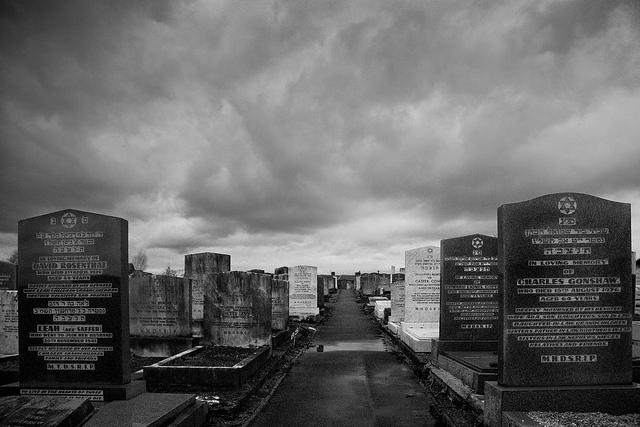
The church said the state is acting in an irrational manner.
Michael Shipp, a US District Judge, is considering whether to cancel a state law which stops private religious cemeteries if they try to sell headstones. The case came into prominence after the state and Newark’s Roman Catholic Archdiocese clashed on December 6 in court concerning the legislation. The judge, from his bench in Trenton said that a written ruling would be issued by him early 2018.
Legal Debate Over Whether Catholic Church Can Sell Headstones[/tweetthis]
Jeff Rowes, the church-appointed attorney, said on December 6 that the 2015-era law applicable to New Jersey prohibiting any religious cemeteries to sell headstones can be regarded as irrational. He argued such a law also fails to pass the constitutional requirement.
The dispute began when the archdiocese broadened the inscription rights program in 2013. The revenue generated from the program will go to the upkeep of the cemeteries. The program started by the church provided the headstone option with one clause: the latter will be owned by the church in perpetuity. As per the idea, any bereaved family may write the inscription on any headstone. The church, however, would take care of the headstone from then on.
An advocacy group, Monument Builders Association of New Jersey, which engages to help people who craft funerary monuments like headstones, jumped in the fray, saying that the tax-free status of the church and its relationship with the parishioners offered it an extremely unfair advantage, This group lost the legal battle. The Democrat heavy Legislature in New Jersey then enacted the Legislation, which was subsequently signed by Chris Christie, the GOP Governor in 2015. The practice was outlawed by the Legislature in 2015.
The church went to court again, supported by a few priests. Rowes put forward the argument that the court was irrational to permit such regulation under the present laws of New Jersey. He put forward the argument that the state is already permitted to sell a lot of “materially” alike items like community mausoleums and plots.
The state countered by saying that it must satisfy a constitutional threshold to show that there is a basis for legislation on such a matter. The pro-state funeral directors’ group was represented by Karen Confoy, gave the argument that the court should roundly reject the request made by the archdiocese. It also said that the Legislature cannot be obligated to regulate headstones and mausoleums in the same manner.
